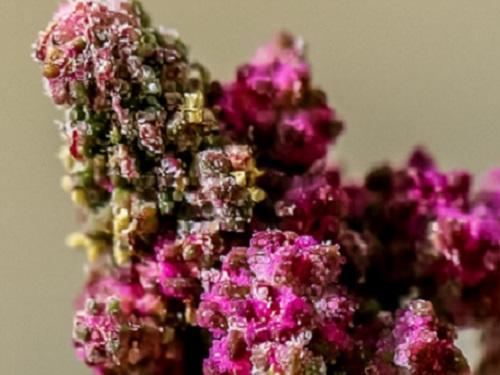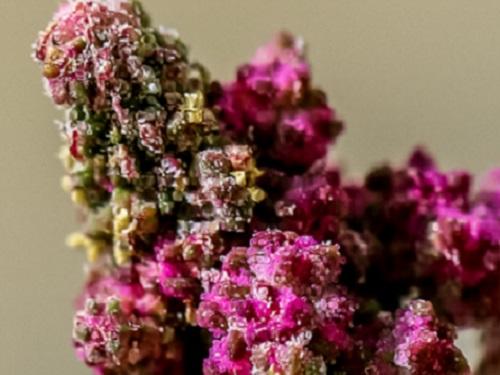
Credit: © 2017 KAUST Linda Polik
Thuwal, Kingdom of Saudi Arabia – Feb. 8, 2017: Quinoa could hold the key to feeding the world's growing population because it can thrive in harsh environments and grows well on poor quality, marginal lands. KAUST researchers have now completed the first high-quality sequence of the Chenopodium quinoa genome, and they have begun pinpointing genes that could be manipulated to change the way the plant matures and produces food. This project brought together 33 researchers from 4 continents, including 20 people from 7 research groups at KAUST, to produce an article that will be published this week in Nature (DOI: 10.1038/nature21370) and will feature on the cover of the February 16 issue.
"Quinoa was the staple 'Mother Grain' that fueled the ancient Andean civilizations, but the crop was marginalized when the Spanish arrived in South America and has only recently been revived as a new crop of global interest," said KAUST Professor of Plant Science Mark Tester, who led the project team. "This means quinoa has never been fully domesticated or bred to its full potential even though it provides a more balanced source of nutrients for humans than cereals."
As a first step toward improving our understanding of how quinoa grows, matures and produces seeds, Tester's team decided to sequence its genome. They used a combination of techniques, including cutting-edge sequencing technologies and genetic mapping, to piece together full chromosomes of C. quinoa. Their resulting genome is the highest-quality quinoa sequence to date, and it is already yielding insights into the plant's traits and growth mechanisms.
"One problem with quinoa is that the plant naturally produces bitter-tasting seeds," said Tester. "This is due to the accumulation of chemical compounds called saponins in the seeds. We've pinpointed one of the genes that we believe controls the production of saponins in quinoa, which would facilitate the breeding of plants without saponins to make the seeds taste sweeter."
There is immense potential for the genome sequence to help scientists understand quinoa and therefore modify it for more widespread, commercial use. For example, breeders could use this genetic information to learn how to control plant size to favor shorter, stockier plants that are less likely to fall over. These more stable plants could support bigger seed heads and be grown closer together in large fields.
"We already know that the quinoa plant family is incredibly resilient," said Tester. "It can grow in poor soils, salty soils and at high altitudes. It really is a very tough plant. Quinoa could provide a healthy, nutritious food source for the world using land and water that currently cannot be used, and our new genome takes us one step closer to that goal."
###
About KAUST:
Established in 2009, King Abdullah University of Science and Technology (KAUST) is a graduate-level research university located on the shores of the Red Sea in Saudi Arabia. KAUST is dedicated to advancing science and technology through interdisciplinary research, education and innovation. Curiosity-driven and goal-oriented research is conducted by students, faculty, scientists and engineers to address the world's pressing scientific and technological challenges related to food, water, energy and the environment. The university currently educates and trains over 900 master's and doctoral students supported by an academic community of 150 faculty members, 400 postdocs and 300 research scientists. With 100 nationalities working and living at KAUST, the university brings together people and ideas from all over the world. Visit kaust.edu.sa for more information.
Media Contact
Michelle D'Antoni
[email protected]
966-128-083-178
http://kaust.edu.sa/
############
Story Source: Materials provided by Scienmag





